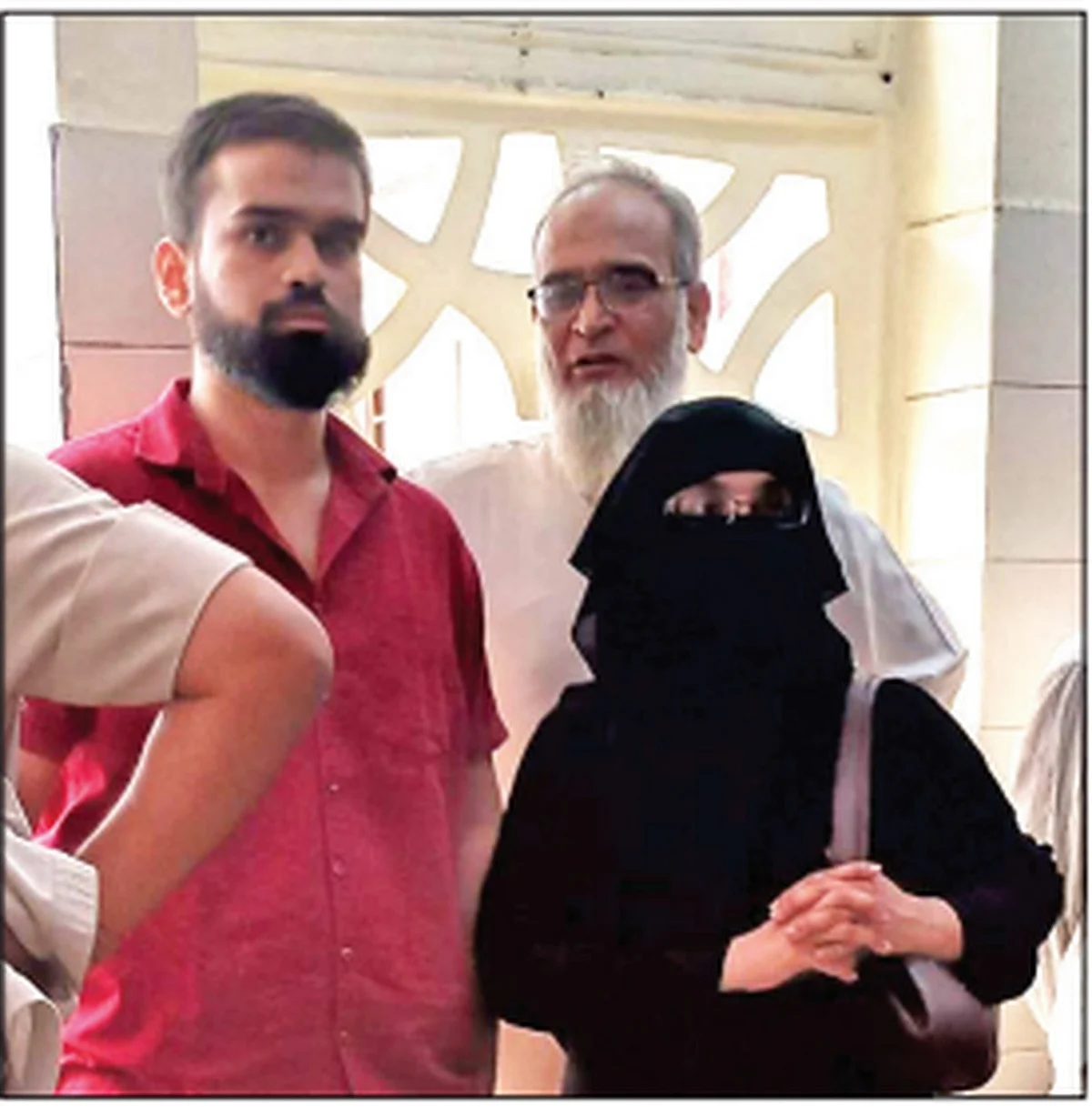No light at end of tunnel for Athar Khan, behind bars for alleged role in Delhi riots
Athar Khan was almost certainly targetted because he was a Muslim and because he was participating in anti-CAA protests

He is one of the 18 accused in Delhi riots cases booked under the draconian Unlawful Activities Prevention Act (UAPA) after BJP rabble-rouser Kapil Mishra posted a photograph of the 26-year-old Athar Khan accusing him of being one of the masterminds of the riots.
Ironically, family members of the BBA (Bachelor of Business Administration) final-year student claim that Athar was a volunteer with Aam Aadmi Party and had worked for Kapil Mishra when he contested the election as an AAP candidate. But then Mishra moved to the BJP while Athar Khan got involved in anti-CAA protests in Delhi.
The rest, as the saying goes, is history.
Mishra shared an old photograph of Athar, when he was working for him, and identified him as a “mastermind” of the riots. Five months after Delhi riots in 2020, police summoned the youngster for interrogation in July that year. The newspapers next day reported that he had been arrested from his house. The family insists that this was a lie, that charges against him were baseless. Those who claim he is an ‘anti-national’ or a traitor are fools, fumes his father.
Athar’s arrest and long incarceration, however, have made a material difference to the family. The eldest of four siblings, he was trading in spices to support the family income. While his own business has folded up, his father’s business too has suffered. Friends, relatives and neighbours now maintain their distance from the family.
“Most of my friends were Hindus; most of my business was also with Hindus,” recalls Athar’s father. But barring one of them, he confides, others have stopped talking with him. He attributes it to the all-pervasive fear. People are afraid of interacting with the family targetted and branded by the police.
He appears resigned to the communal polarisation. Even Hindu children in the neighbourhood tell Muslims of their own age that they should not hold the national flag and take no part in Independence Day celebrations. Weren’t they all traitors and Pakistanis? When children can be so cruel, he laments, you can imagine the intensity among the adults.
Athar was almost certainly targetted because he was a Muslim and because he was participating in anti-CAA protests. Without naming Kapil Mishra, he told The Quint in June this year, “Everybody knows in Delhi who called for violence and who served an ultimatum for protesters to disperse.”
The riots led to the killing of 53 people, an overwhelming majority of them being Muslims. They were killed in their own locality while their houses and shops were set on fire, looted and destroyed.
Delhi Police arrested 1,825 people for rioting and booked 18 of them under the UAPA. Athar Khan is among them. Only six of the 18 booked under UAPA have so far got bail. While Athar has been granted bail in two cases, the case under UAPA has not come up for hearing for the past six months. There was a hearing due on August 6, which was deferred again till August 25, confides his maternal uncle Najmuddin.
Athar’s lawyer Arjun Dewan alleged in court that his client was being tortured in prison and in prison vans; that he was being strip-searched routinely. He prayed for the CCTV footage to be produced before the court. But while the magistrate did call for the CCTV footage, it is yet to be produced.
Athar’s father Afzal Khan alleges that Athar confided to the family that he was being subjected to torture and abuse because of his religion. Several such instances have been brought to court’s notice.
“Because of the torture he could not even speak clearly and communicated only through gestures; but while he now can speak, he is still in a state of trauma,” Afzal Khan says.
Athar’s mother Noor Jahan says, “Athar does not tell me anything… maybe, he doesn’t want me to get upset, but what else can I do but be patient and wait for his ordeal to end?” She recalls reading socialist leader Ram Manohar Lohia extolling virtues of popular protests.
Deserted roads would signal the demise of democracy, Lohia had suggested. But when students take to the streets to protest against unconstitutional laws, they are being attacked and thrown in prisons, she says with a sigh.
Follow us on: Facebook, Twitter, Google News, Instagram
Join our official telegram channel (@nationalherald) and stay updated with the latest headlines
